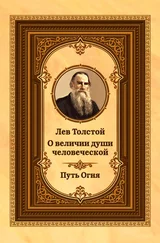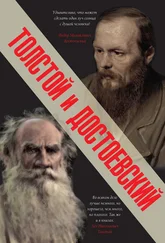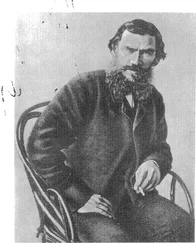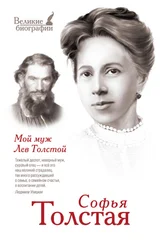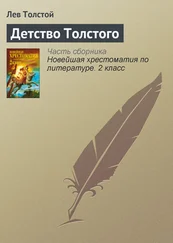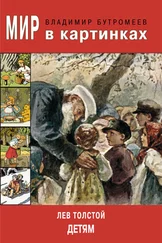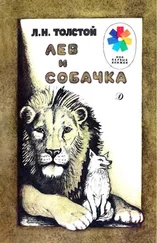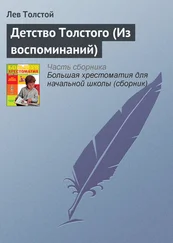Лев Толстой - Katia
Здесь есть возможность читать онлайн «Лев Толстой - Katia» весь текст электронной книги совершенно бесплатно (целиком полную версию без сокращений). В некоторых случаях можно слушать аудио, скачать через торрент в формате fb2 и присутствует краткое содержание. Издательство: Иностранный паблик, Жанр: Русская классическая проза, на английском языке. Описание произведения, (предисловие) а так же отзывы посетителей доступны на портале библиотеки ЛибКат.
- Название:Katia
- Автор:
- Издательство:Иностранный паблик
- Жанр:
- Год:неизвестен
- ISBN:нет данных
- Рейтинг книги:3 / 5. Голосов: 1
-
Избранное:Добавить в избранное
- Отзывы:
-
Ваша оценка:
- 60
- 1
- 2
- 3
- 4
- 5
Katia: краткое содержание, описание и аннотация
Предлагаем к чтению аннотацию, описание, краткое содержание или предисловие (зависит от того, что написал сам автор книги «Katia»). Если вы не нашли необходимую информацию о книге — напишите в комментариях, мы постараемся отыскать её.
Katia — читать онлайн бесплатно полную книгу (весь текст) целиком
Ниже представлен текст книги, разбитый по страницам. Система сохранения места последней прочитанной страницы, позволяет с удобством читать онлайн бесплатно книгу «Katia», без необходимости каждый раз заново искать на чём Вы остановились. Поставьте закладку, и сможете в любой момент перейти на страницу, на которой закончили чтение.
Интервал:
Закладка:
He moved his lips in almost dumb show, imitating me, and as if he, on his side, was saying something that no one else must hear. Then, spying the plate of cherries, he pretended to seize it and carry it off by stealth, running away towards Sonia, and dropping on the grass under the linden-tree in the midst of her accumulation of dolls. Sonia was about to fly into a little rage, but he made peace with her by proposing a new game, the point of which lay in seeing which of the two could devour the most cherries.
“Shall I order some more?” I asked, “or shall we go gather them for ourselves?”
He picked up the plate, piled Sonia’s dolls in it, and we all three started for the cherry orchard. Sonia, shouting with laughter, trotted after him, tugging at his coat to make him give her back her family. He did so; and turning gravely to me:
“Come, how can you convince me that you are not a violet?” he said, still speaking very low, though there was now no one for him to be afraid of waking; “as soon as I came near you, after having been through so much dust and heat and fatigue, I seemed to perceive the fragrance of a violet, not, it is true, that violet with the powerful perfume, but the little early one, you know, which steals out first, still modest, to breathe at once the expiring snow and the springing grass…”
“But, tell me, is the harvest coming on well?” I put in hastily, to cover the happy confusion his words caused me.
“Wonderfully! what excellent people these all are, – the more one knows them, the more one loves them.”
“Oh, yes! – A little while ago, before you came, I sat watching their work, and it really went to my conscience to see them toiling so faithfully, while I was just idly taking my ease, and…”
“Do not play with these sentiments, Katia,” he interrupted, with a serious manner, giving me at the same time a caressing glance, “there is holy work there. May God guard you from posing in such matters!”
“But it was only to you that I said that!”
“I know it. – Well, and our cherries?”
The cherry orchard was locked, not a single gardener was to be found (he had sent them all to the harvest fields). Sonia ran off to look for the key; but, without waiting for her return, he climbed up at a corner by catching hold of the meshes of the net, and jumped down inside the wall.
“Will you give me the plate?” he asked me, from within.
“No, I want to gather some, myself; I will go get the key, I doubt if Sonia can find it.”
But at that moment a sudden fancy seized me, to find out what he was doing there, how he looked, in short his demeanor when he supposed no one could see him. Or rather, honestly, perhaps just then I did not feel like losing sight of him for a single instant. So on my tip-toes, through the nettles, I made a circuit around the little orchard and gained the opposite side, where the enclosure was lower; there, stepping up on an empty tub, I found the wall but breast-high, and leaned over. I made a survey of everything within; looked at the crooked old trees, the large serrated leaves, the black, vertical clusters of juicy fruit; and, slipping my head under the net, I could observe Sergius Mikaïlovitch through the twisted boughs of an old cherry-tree. He was certainly confident that I had gone, and that no one could see him.
With bared head and closed eyes he was sitting on the mouldering trunk of an old tree, absently rolling between his fingers a bit of cherry-gum. All at once, he opened his eyes, and murmured something, with a smile. The word and smile were so little in keeping with what I knew of him that I was ashamed of having watched him. It really seemed to me that the word was: Katia! “That cannot be!” I said to myself. “Dear Katia!” he repeated lower, and still more tenderly. And this time I heard the two words distinctly. My heart began to beat so fast, I was so filled with joyful emotion, I even felt, as it were, such a kind of shock, that I had to hold on to the wall with both hands, to keep myself from falling, and so betraying myself. He heard my movement, and glanced behind him, startled; then suddenly casting down his eyes he blushed, reddening like a child. He made an effort to speak to me, but could not, and this failure made his face grow deeper and deeper scarlet. Yet he smiled as he looked at me. I smiled at him too. He looked all alive with happiness; this was no longer, then, – oh, no, this was no longer an old uncle lavishing cares and caresses upon me; I had there before my eyes a man on my own level, loving me and fearing me; a man whom I myself feared, and loved. We did not speak, we only looked at each other. But suddenly he bent his brows darkly; smile and glow went out of his eyes simultaneously, and his bearing became again cold and fatherly, as if we had been doing something wrong, as if he had regained control of himself and was counselling me to do the same.
“Get down from there, you will hurt yourself,” said he. “And arrange your hair; you ought to see what you look like!”
“Why does he dissemble so? Why does he wish to wound me?” I thought, indignantly. And at the moment came an irresistible desire to move him again, and to try my power over him.
“No, I want to gather some cherries, myself,” I said; and grasping a neighboring bough with my hands, I swung myself over the wall. He had no time to catch me, I dropped to the ground in the middle of the little space.
“What folly is this?” he exclaimed, flushing again, and endeavoring to conceal his alarm under a semblance of anger. “You might injure yourself! And how are you going to get out?”
He was much more perturbed than when he first caught sight of me; but now this agitation no longer gladdened me, on the contrary it made me afraid. I was attacked by it in my turn; I blushed, moved away, no longer knowing what to say to him, and began to pick cherries very fast, without having anything to put them in. I reproached myself, I repented, I was frightened, it seemed to me that by this step I had ruined myself forever in his eyes. We both remained speechless, and the silence weighed heavily upon both. Sonia, running back with the key, freed us from our embarrassing situation. However, we still persistently avoided speaking to each other, both preferring to address little Sonia instead. When we were again with Macha, (who vowed she had not been asleep, and had heard everything that had gone on,) my calmness returned, while he, on his side, made another effort to resume his tone of paternal kindness. But the effort was not successful, and did not deceive me at all. A certain conversation that had taken place two days before still lived in my memory.
Macha had announced her opinion that a man loves more easily than a woman, and also more easily expresses his love. She added:
“A man can say that he loves, and a woman cannot.”
“Now it seems to me that a man neither ought nor can say that he loves,” was his reply.
I asked him why.
“Because it would always be a lie. What is this discovery that a man loves ? As if he had only to pronounce the word, and there must immediately spring from it something extraordinary, some phenomenon or other, exploding all at once! It seems to me that those people who say to you solemnly: ‘I love you,’ either deceive themselves, or, which is worse, deceive others.”
“Then you think a woman is to know that she is loved, without being told?” asked Macha.
“That I do not know; every man has his own fashion of speech. But such feelings make themselves understood. When I read a novel, I always try to imagine the embarrassed air of Lieutenant Crelski or Alfred, as he declares: ‘Eléonore, I love thee!’ which speech he fancies is going to produce something astounding, all of a sudden, – while in reality it causes nothing at all, neither in her nor in him: features, look, everything, remain precisely the same!”
Читать дальшеИнтервал:
Закладка:
Похожие книги на «Katia»
Представляем Вашему вниманию похожие книги на «Katia» списком для выбора. Мы отобрали схожую по названию и смыслу литературу в надежде предоставить читателям больше вариантов отыскать новые, интересные, ещё непрочитанные произведения.
Обсуждение, отзывы о книге «Katia» и просто собственные мнения читателей. Оставьте ваши комментарии, напишите, что Вы думаете о произведении, его смысле или главных героях. Укажите что конкретно понравилось, а что нет, и почему Вы так считаете.

